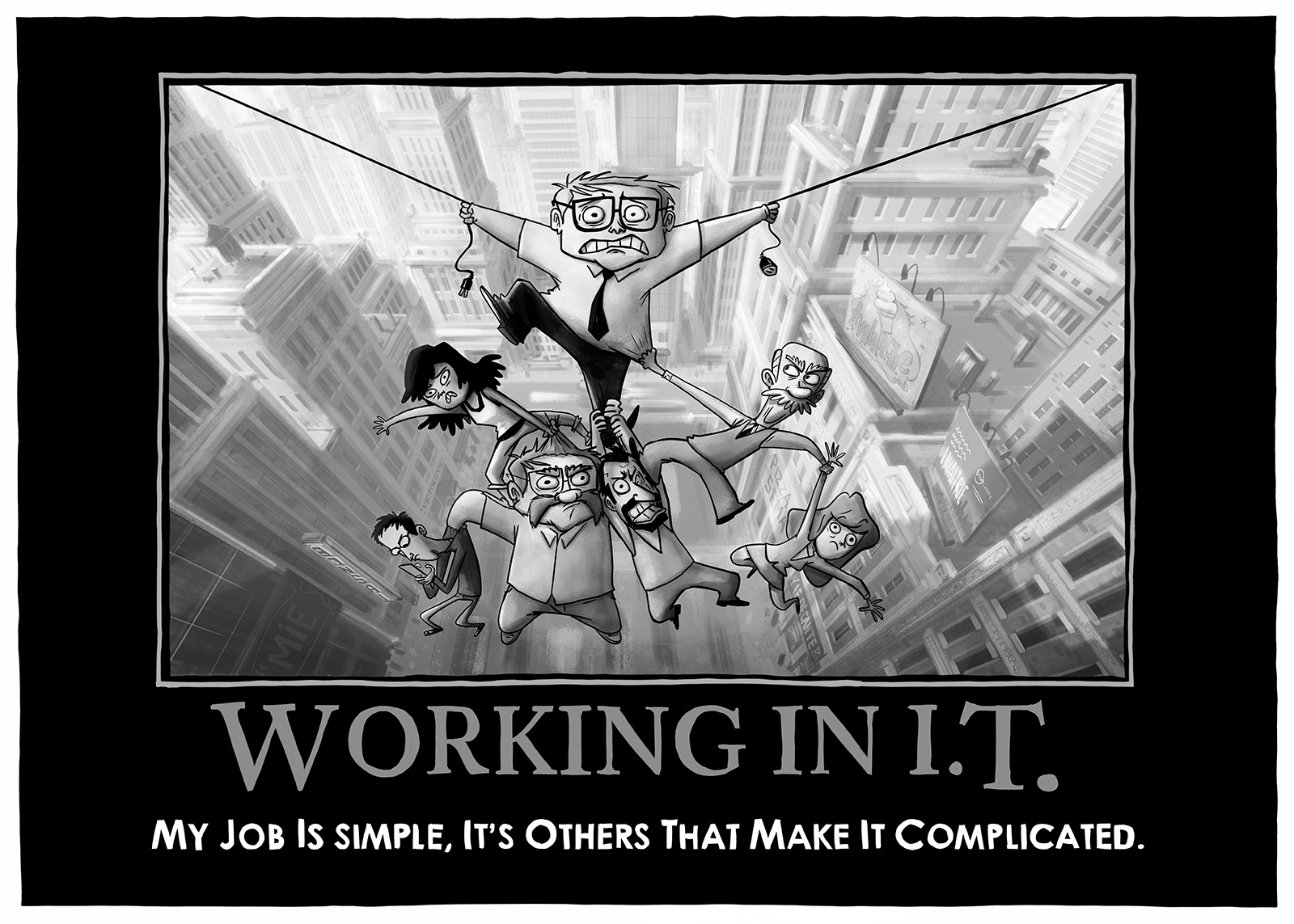The remote work format is convenient, especially for residents of small cities who do not want to leave their homelands. However, this is not a ticket to a guaranteed future. This format has not only advantages, but also limitations. Let's talk about what career development can be counted on, focusing exclusively on the remote.

The market of completely remote work in our country is still only in its infancy. I started working remotely in 2010. And at that time, the organization in which I got a job was, before my eyes, perhaps the only example of a Russian office. It is clear that there were others, but the general public did not have the slightest idea of their activities.
There are now more companies recruiting remote employees. But major players are still afraid to go into this area. They need time to understand how to work with this and whether it is worth getting involved in it at all. On the other hand, IT in the regions is also developing - there are more local career opportunities in some cities primarily due to the development of outsourcing. Perhaps this movement can also be called part of the overall transition to remote communications. As a result, each city has its own market for IT vacancies, in which a remote employee is just one of the opportunities. Whether it is justified from an economic point of view that a resident of a city to focus on a distance, one should look at specific examples. However, there are a number of factors to consider. We’ll talk about them.
What offers are there on the market?
Compared with the situation nine years ago, when I went out on a remote site, everything has changed significantly. Opportunities on udalenka definitely became more.
I see a move towards the distant work of large players. True, everything depends on a particular team there. Somewhere there will be an option of completely remote work, but somewhere not.
At the moment, closing staffing needs, it is easier for a large company to open a development center in any region. This step allows us to slightly simplify the inevitable change in business processes when switching to the “remote format”, because people will have a specific office and workplace, and it’s clear how to work with this. As a result, teams can still gather from different offices, and then this will differ from the udalenka only by the obligation to visit a certain location on a schedule. However, big business is more familiar with this approach.
Despite these habits, even these companies begin to experiment.
The offer is really fueled by small and medium-sized businesses, which simply do not need these difficulties with regional offices. Implementing new processes here is much simpler, and the benefits of the remote are no less - this is access to the best personnel in your profile. In companies that were originally created with an eye on the remote, like “Maxilekt”, it is often easier to form the necessary communication processes from scratch (creating from scratch is not as costly as integrating into a working business). Although the market already has a variety of examples.
No matter how the company develops, no matter what business processes it implements, there are things that really have not become remote. For example, no one has yet figured out how to remotely conduct a corporate party. And gathering in a non-working environment, communicating on remote topics really simplifies the interaction.

What can you count on?
At one time, I came to a full-fledged udalenka, one might say, by chance. The boss at one place of work himself recommended a partner to me, with whom I continued to work. There the tasks were more interesting and more money, and the format turned out to be an “application” to these factors.
At the same time, no radical changes have occurred in my life. To be honest, I never worked in a local office team that would know my customer, relatively speaking, in person. Of the similar vacancies available in my hometown, I did not like any. Before starting cooperation with the mentioned partner, of course, I had to visit the office, but the customers were far away.
In other words, not finding interesting tasks (and adequate money) in the neighborhood, I turned to remote interaction.
Now, on the whole, the general idea has not changed: if there are no interesting tasks nearby (or inadequate money is being offered for them), the remote is the solution. But you must understand that this is not a panacea.
If you do not live in a city with a population of over one million, there will be several more opportunities in terms of professional growth. In your city, you are limited to certain companies and technologies. For Moscow, St. Petersburg, Yekaterinburg, Kazan and a number of other cities, this restriction does not play a big role. And in regional centers with a population of about 500 thousand people and less, it is difficult to find really interesting IT tasks (if there are any, there is a great demand for such vacancies). Therefore, for residents of these regions, faster professional growth is possible in the remote area - you do not have to sit and wait a long time until the desired position is vacated in the local company. You can immediately apply for a position with more interesting tasks or team controls - depending on personal preferences.
The career path on a remote location is no different from the office - here you can also develop in both technological and managerial ways. I would like to dwell on growth in the managerial line separately.
The work of a conditional team lead on a remote site practically does not differ from a similar position in the office. You just use other tools, because you do not have the opportunity to personally reach a person. Of course, you need to be able to communicate remotely, but these skills are needed without any managerial status.
However, there are positions with which it is not so simple. For example, the fact that I work as a technical director at Maxilect completely remotely is an exception to the rule. If you really aim at this position, and in your hometown there are too few IT companies and relevant offers, then you just need to move to another city - to the office that seems attractive. With relocation to a large metropolis, there will be much more offers available than remotely.
For a company to agree to take a remote technical director, it must be fully distributed - this is the only option. If the organization has an office in which all the top management sits, in my opinion, with a probability of 95%, the remote techdir will not succeed. Between him and the rest of the management there will be more complex communication than the management among themselves, and this is a serious gap. For an ordinary developer, such things are less noticeable - many can comfortably work remotely in a team where some people are sitting in the same office (although there may be features).
Another example where the remote is significantly interfering is B2B sales, especially if all customers are in Moscow. In this segment, many want personal meetings to make a decision. Therefore, if you need to somehow participate in sales by position, for example, in the role of an architect, selling the technical part of a solution to customers, working remotely can be more difficult. And it all rests not at all in the technology or in the business processes of the company, but in the fact that the clients themselves are not used to remote communication. These habits are also changing, but not as fast as we would like.

As a generalization of the above, the remote work format is comfortable and predictable if everything happens somewhere inside the remote team. As soon as an employee, as a result of career growth or changes in a team, is “on the border”, a remote employee must communicate with those who prefer personal communication (clients, TOP managers in the office), everything becomes much more complicated. And the effectiveness to a greater extent begins to depend on personal qualities. And here one can no longer talk about whether it will be easier to find work in this position, focusing on the remote. It might be easier for someone, but not for everyone. Applying for such a vacancy, it is necessary not only to correspond to the position, but also to demonstrate the ability to overcome possible difficulties with communications. In fact, at the same time, you need to “sell” your candidacy to future bosses. And the organization itself, of course, must be prepared for experimentation.
And what about the western market?
There was a period when there were even more offers of remote work from the West than domestically. I myself once worked for Australia. But now many companies are reluctant to work with Russia. Of course, vacancies exist, that's for sure. But I did not see the explosive growth of job offers for European or American firms.
There is no tangible increase in demand for these proposals either. Remote work to the West is most likely the difference in time zones, legal and language barriers, foreign currency accounts of individual entrepreneurs and legalization of income. Career growth in a Western company is also in question - here political risks for business come into play, which can outweigh even the ideal candidate from Russia. It’s at least easier for a candidate to work with Russian companies.
Most likely, this will be a team in one (plus or minus two) time zone, and not with a difference of 11 hours. It will be much easier to formalize relationships under the law and to defend their interests in case of disagreement. And unlike foreign companies, here in a remote format, career growth is more real (we are not talking about leaving in this case). And the salary offers, in my opinion, are no longer so radically different as to refuse growth and some kind of guarantees because of money.
Instead of the results, I note that now in a remote place in our country there are quite real career prospects. But do not take the remote format as a means of quick take-off. For IT workers from the regions, it provides an opportunity to try their hand at more interesting tasks, and maybe increase revenues, but there are also difficulties there.
The author of the article: Nikolay Eremin.
This article is the second part of our IT career career publication series. The first part is here .
Help us make the articles on our blog more interesting. Please answer three questions .
PS We publish our articles on several sites of the Runet. Subscribe to our pages in VK , FB or Telegram-channel to learn about all our publications and other Maxilect news.